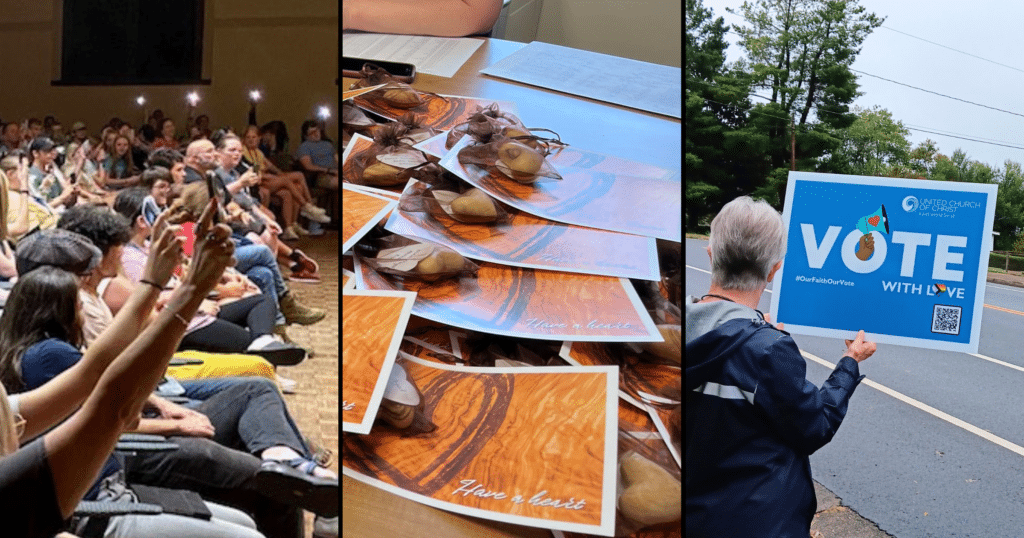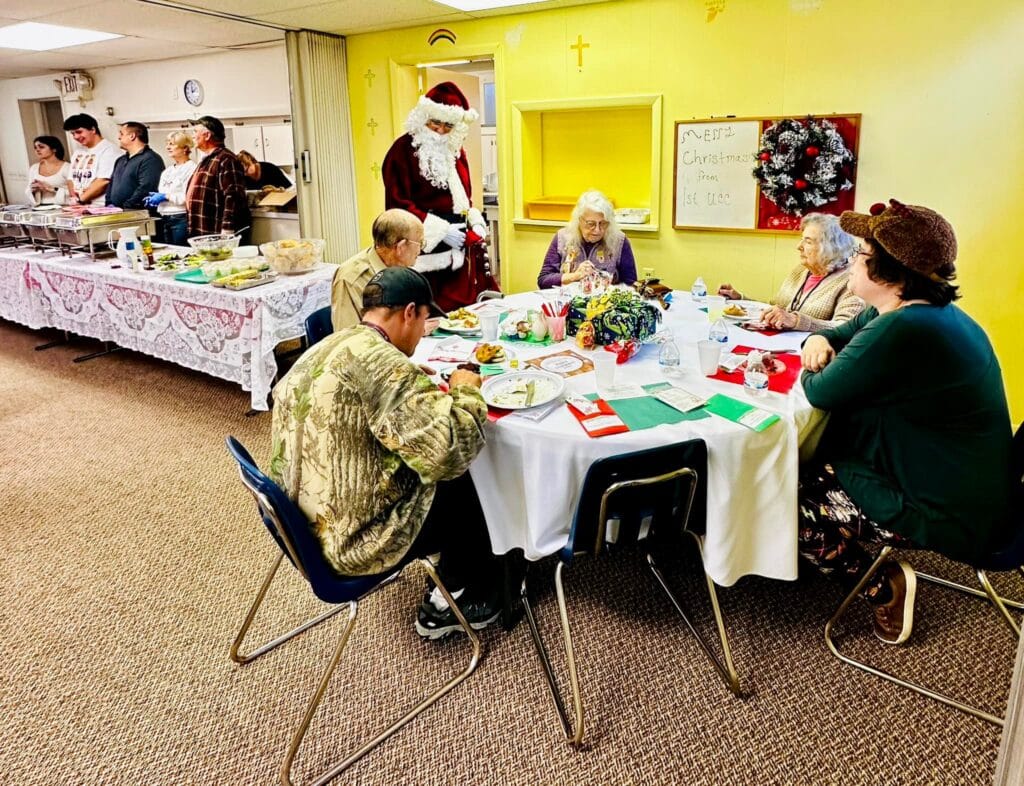Coronavirus leaves its mark all over 2020 list of top UCC news stories
The top position in this annual United Church of Christ news review goes to a microscopic creature that, 12 months ago, almost no one had heard of.
Not only that, COVID-19, formally known as “severe acute respiratory syndrome coronavirus 2,” or “SARS-CoV-2,” affected just about every other item on this list.
These 10 news topics were the top ones covered in 2020 at the UCC website and in the weekly UCC e-news digest, “Keeping You Posted.” A few representative examples follow each topic heading.
As 2020 closes, we, the news staff of the UCC national setting, offer to you, dear reader, warm condolences in the difficulties of this time, encouragement in the struggle for justice and peace, and enduring Christmas wishes of hope and love.
No. 10: Religious freedom
Government objections didn’t stop pastors and local churches from asserting their rights to carry out ministries they deemed critical.
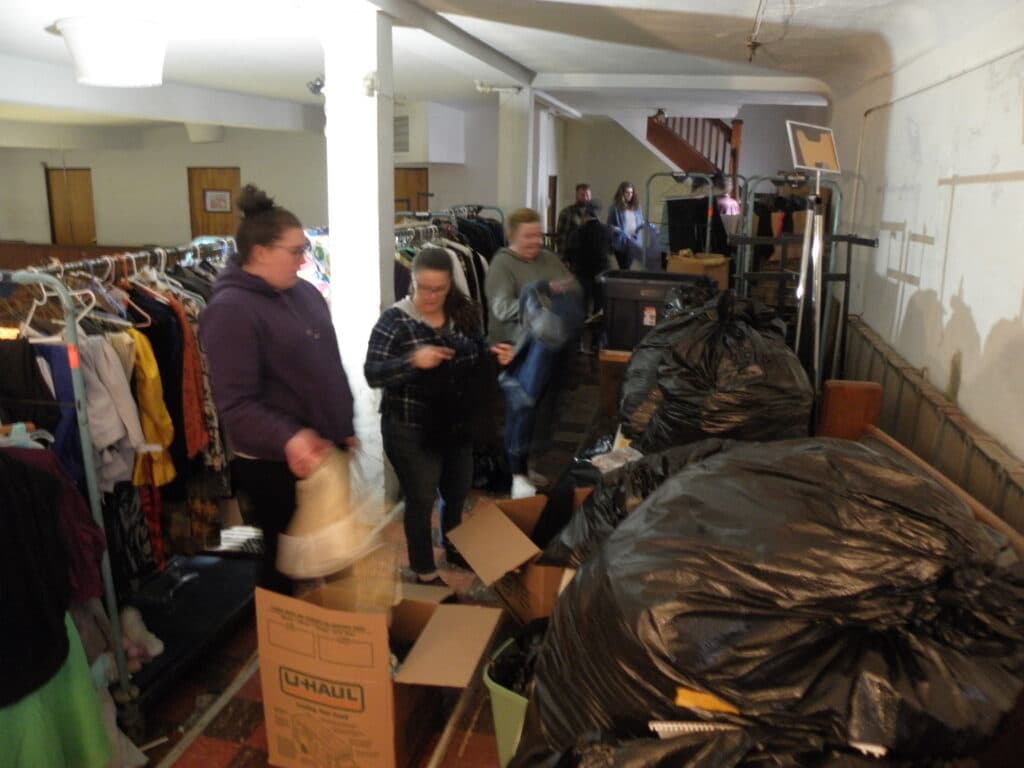
- A New York City pastor continued her legal fight to minister to immigrants and refugees on the southern U.S. border.
- Battling city resistance, a Cleveland congregation rallied public support to provide overnight hospitality to homeless people, even after the pandemic’s onset.
- A Florida church went to federal court over its ability to accept parking-lot donations from beachgoers in support of its youth mission trips.
No. 9: Ministries with partners
In response to COVID and other matters of justice, ecumenical and interfaith work with partners was as important as ever, globally and in the U.S.
- A Southern Asia Initiative, launched in 2019, continued with a 2020 pre-pandemic visit to the region by UCC and Christian Church (Disciples of Christ)
- In a series of virtual updates, Global Ministries highlighted the challenges and inequalities faced by overseas partners in responding to COVID-19.
- Interfaith prayers were shared online during a special 24-hour period in May and a September immigrant-welcoming service based in Cleveland.
- Advocacy for the rights of Palestinians ranged from objections to further takovers of their territories by Israel to a call to boycott Pillsbury products.
- Partners recommitted themselves to opposing anti-Muslim discrimination and violence.
No. 8: Earth’s climate
In a record-setting year for fires and floods (see No. 4), reversing climate breakdown remained an urgent priority.
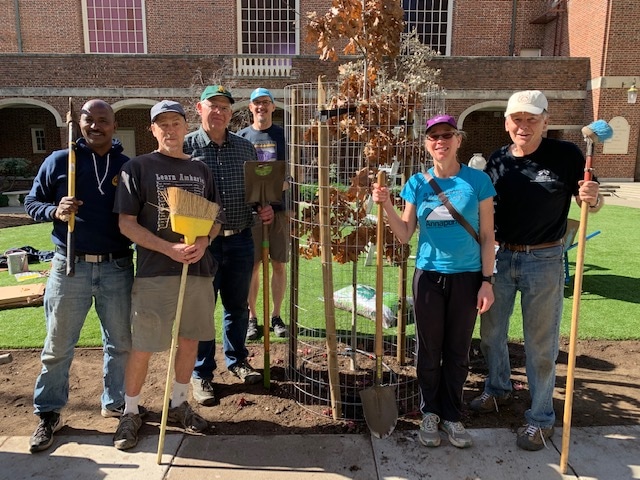
- A UCC “Breath to the People” study pinpointed the top 100 toxic air polluters in the U.S., highlighting the numbers of children living near their sites and encouraging the public to act.
- A 3 Great Loves campaign prompted the planting of thousands of trees.
- UCC speakers took prominent roles in the American Climate Leadership Summit.
- Local churches continued to embrace environmental initiatives, in some cases offering award-winning leadership.
No. 7: Medical debt relief
A campaign begun in 2019 and scheduled to run through the 2021 General Synod celebrated three more achievements toward its goal of relieving medical debt in each of the UCC’s regions, combining locally raised funds with contributions from the national setting.
- In the West Central Region, churches of the Missouri Mid-South Conference bought up and abolished $12.9 million in medical debt for 11,101 households in the Greater St. Louis area.
- In the New England Region, donors in the Southern New England Conference relieved $8.4 million in medical debt for 7,175 households in Connecticut, Massachusetts, Rhode Island and beyond – and another $17.8 million for 12,144 families of frontline “COVID Heroes” nationwide.
- Also in West Central, Kansas-Oklahoma Conference donors provided $5.2 million in debt forgiveness for 3,234 households in those two states.
No. 6: Immigration, refugees, asylum seekers
Whether offering aid or opposing restrictive policies, many UCC ministries spoke up and took action for people who are already in the U.S. or who want to be.
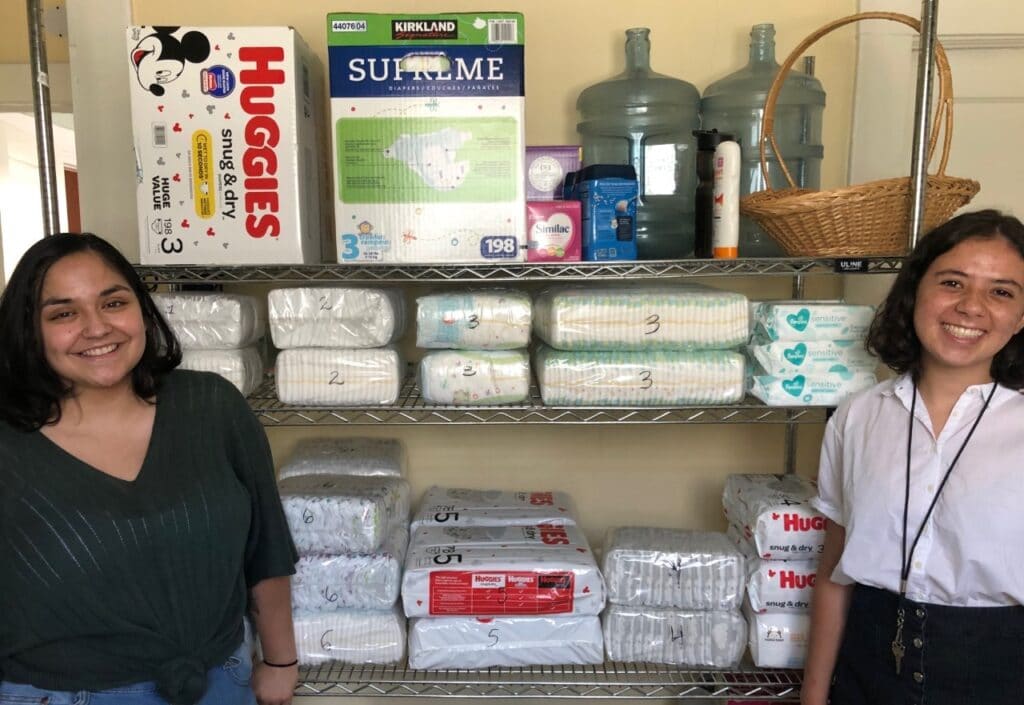
- Along with partners, UCC advocates opposed increasingly narrow U.S. policies, including limits on refugee admissions, travel bans against immigrants from predominantly Muslim countries and an immigration freeze.
- Global Ministries’ Centro Romero, on the U.S.-Mexico border, initiated a COVID-related outreach to single immigrant mothers and their children.
- Dozens of local-church efforts ranged from providing aid to undocumented workers sheltering in place without income, to assisting immigrant and refugee neighbors burdened by COVID, to helping lead a “Save Asylum” march to protest the treatment of people at the southern U.S. border, to displaying an immigration-themed nativity scene.
- A Missouri church – one of dozens taking part in the decades-long sanctuary movement – marked three straight years of hosting an immigrant to prevent his deportation.
No. 5: Embrace of new technologies
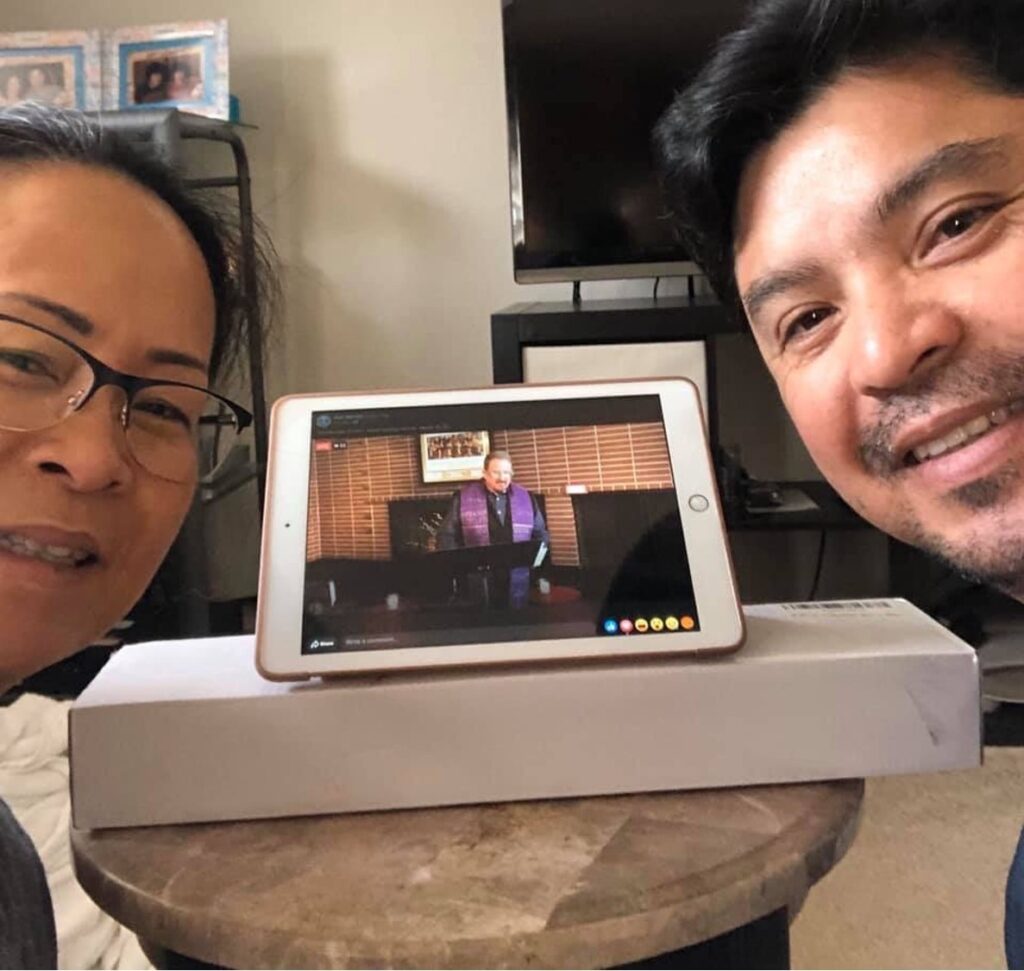
With COVID-19 making it unsafe to worship and meet in person, many settings of the church moved online – creating challenges, but also fresh advantages that many want to keep even when it’s safe to gather physically again.
- As they closed their buildings, local churches offered pastoral touches and prophetic voices virtually, wrestled with decisions on church meetings and shelter ministries, used cars creatively, had new insights at Holy Week and Easter, adapted everything from fundraisers to Advent and Christmas, and used the outdoors in big ways.
- Conference ministers offered online Eastertide worship services and a pandemic webinar series to the whole church, Conference leaders made complex decisions about annual meetings, and seminaries held classes and commencements remotely.
- With the Church House in Cleveland closed and travel curtailed, ministries in the national setting produced weekly “Tuesdays for Nurture” and “Thursdays for the Soul” webinars, created online worship services for such occasions as Maundy Thursday, All Saints’ Day and Christmas, postponed the quadrennial National Youth Event till 2022 but still offered virtual activities; held the UCC Board’s first-ever online meeting and announced that the 2021 General Synod will be virtual, too.
No. 4: Wildfires, other disasters
In a year that set records for Atlantic hurricanes and wildfires in several U.S. states, the UCC and its partners were busy responding to disasters.
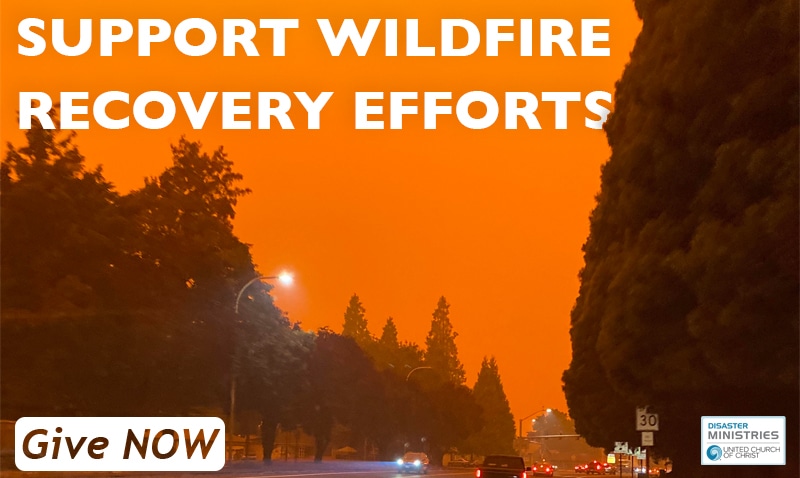
- A series of destructive earthquakes in Puerto Rico brought aid from the UCC.
- As the death toll rose in Australia after months of brush fires, church partners there sought prayers from North America.
- Relief was offered after a gigantic explosion damaged entire neighborhoods of Beirut, Lebanon.
- Churches and camps were among those both affected by and responding to rampant wildfires on the U.S. West Coast and an unusual “derecho” windstorm in Iowa.
No. 3: Outcry for Black lives
Church people raised their voices virtually and showed up physically on the streets as the violent deaths of Ahmaud Arbery, Breonna Taylor and George Floyd – at the hands of vigilantes and police – left much of white America unable to deny the hundreds of years of deadly burden borne by people of color.
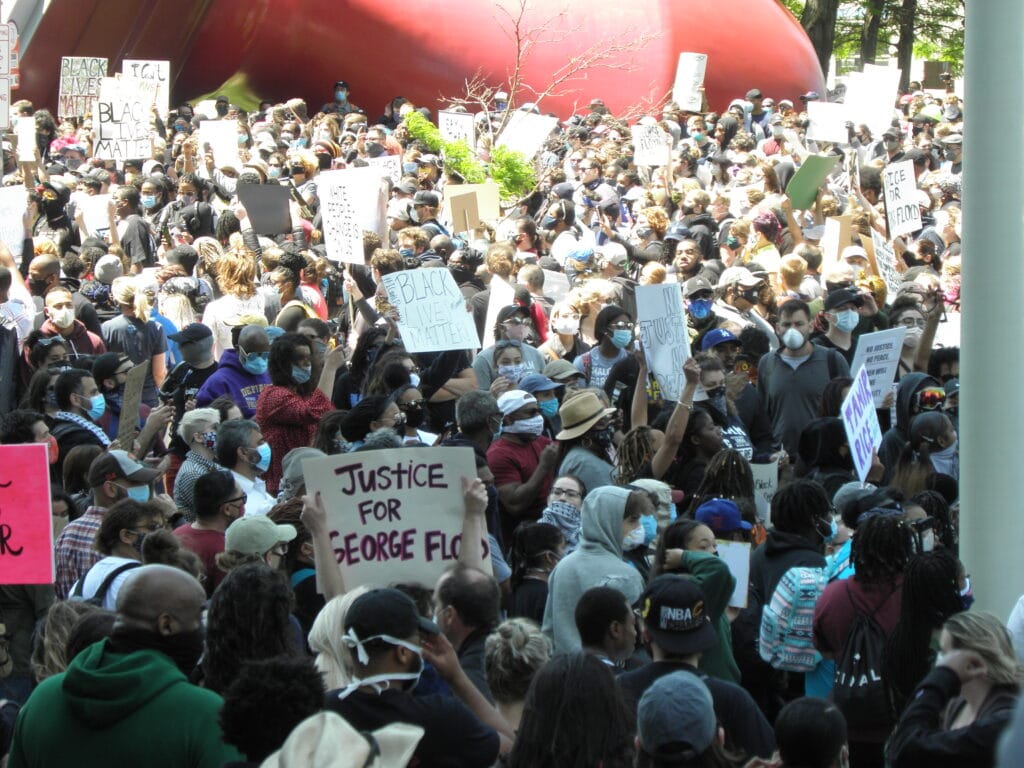
- The UCC had already launched its Sacred Conversations to End Racism curriculum and supported all-church read on racial justice before the widely publicized deaths of Black citizens touched off nationwide responses.
- Among many local UCC people and churches responding were those who confessed white complicity, challenged white supremacy, created a “pray their names” exhibit, made a quilt, studied how to dismantle racism, committed to an every-Friday witness, and joined peaceful protests and ministered to demonstrators in such cities as Minneapolis, Portland, Ore., and Washington, D.C.
- Statements on racism and police violence came from, among others, the UCC officers and Board, the Conferences, The Pension Boards, military chaplains, the Council for Health and Human Service Ministries, the Mental Health Network, the Council for Racial and Ethnic Ministries, young people, and ecumenical partners expressing concern to the United Nations.
- Several webinars addressed the violence, starting with “The Cross and the Lynching Tree,” about Arbery’s murder.
No. 2: The vote
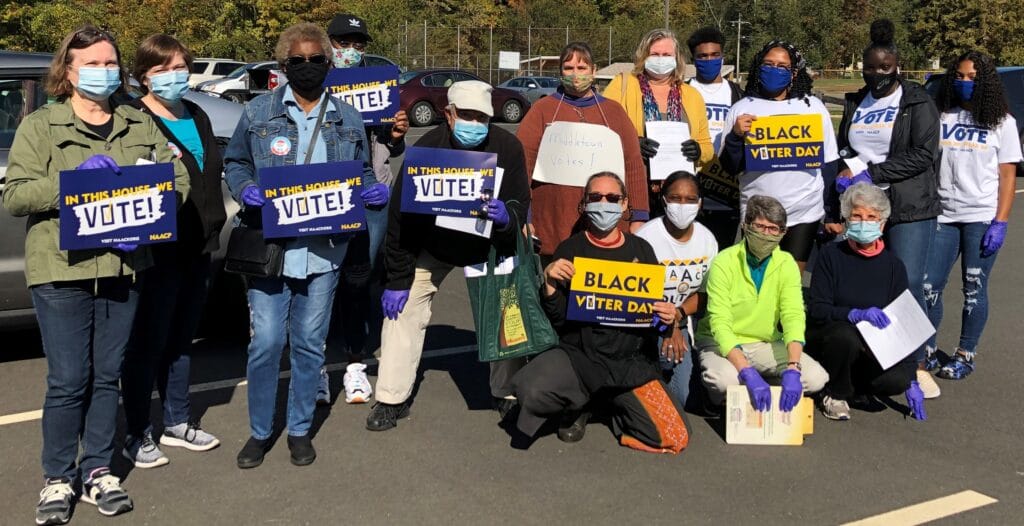
Leading up to a U.S. general election which included one of the most contentious presidential elections in history – and as contention continued after the highest voter turnout ever – UCC people and churches waged nonpartisan efforts to encourage voting.
- Early in the year, voting was already visible as a priority in a pastoral letter from the UCC’s elected officers and the work of congregations in such places as North Carolina, Michigan, Illinois and Georgia.
- As the pandemic forced changes, new “Our Faith, Our Vote” resources were offered, and grants helped churches take modified approaches, including creative ones in urban Baltimore, rural New York State, suburban Connecticut and urban Texas.
- Faith-and-voting webinars featured such figures as U.S. Sen. Elizabeth Warren and rights advocate Stacey Abrams.
- As the election approached, a study revealed the power of low-income voters, registration was emphasized, encouragement, checklists and worship were offered, and UCC leaders joined others in a “peaceful transfer of power” petition in response to doubts cast by the incumbent president on the election process.
No. 1: COVID-19
The church met the novel coronavirus’s late-winter emergence not only with technical adjustments for safety (see No. 5) but with frontline pandemic responses, support of frontline workers, and a generous sharing of dollars, information, pastoral connections and community outreach.
- Starting with the UCC’s first COVID-related statements in March, leaders at the local, conference and national settings preached awareness, not panic; a special web page and daily briefings were offered; and pastoral letters urged “facts over fear,” suspension of in-person worship and caution about returning.
- The Cornerstone Fund and United Church Funds were among those making pandemic relief loans available; some conferences offered grants for such purposes as supporting overburdened clergy.
- The disease’s seriousness was underlined by testimonies of those who caught it, including of Associate General Minister Karen Georgia Thompson, and of chaplains working with patients and families; disaster dollars sent to New York to help with burials; a church bell that tolled 218,000 times for the dead; and the closing of a historic foster care agency.
- Still, works of charity and justice continued locally, including meal programs, blood drives, actions focusing on prisoners and other vulnerable populations, efforts to provide facemasks and other personal protective equipment, and an ongoing Poor People’s Campaign that canceled its planned March on Washington but still drew a million viewers to its online rally.
Related News
Year in Review: Top news highlights of 2024
The United Church of Christ News team has spent each week of 2024 delivering stories that...
Read MoreNo more lonely little Christmases: Chasing away the blues now and into the New Year
With the loneliness epidemic in the U.S. continuing to affect every one in five people, many...
Read MoreUCC Annual Report video brings to life impactful ministries
Leaders of the United Church of Christ are thrilled to share the newly released 2024 Annual...
Read More